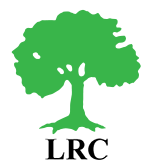Israeli violations against Palestinian Right to Housing in Occupied East Jerusalem During January 2017
Preamble:
Another year when the Israeli occupation keeps on violations and attacks on Palestinian people and properties. Not only that, colonies organizations were given green line to take over properties in Palestinian areas.
In East Jerusalem only, the Israeli Occupation Forces demolished 272 residences during 2016. By the beginning of 2017, demolition rate has notably escalated; 73 residences were brought down by the occupation on January 2017. The so-called Israel municipality in Jerusalem even created a committee to look in the cases of what they called "illegal construction" in Jerusalem. This in itself a step forward to increase demolition of Palestinian properties in the area.
Demolition of Palestinian residences:
The Israeli occupation municipality demolished 27 residences in East Jerusalem including 6 stone houses and 5 cement and 16 residential barracks.
The following table illustrates the number of demolished residences in Jerusalem during February 2017:
Location | Aream2 | No. of residences | Family | Children |
Eizariya | 630 | 8 | 63 | 42 |
Isawiya | 120 | 1 | 5 | 3 |
Beit Hanina | 515 | 5 | 31 | 11 |
Beir Al-Maskoub | 420 | 5 | 38 | 20 |
Wad Sneisil | 640 | 8 | 90 | 150 |
Total | 2325 | 27 | 227 | 577 |
Source: Direct field research- Department of Monitoring Israeli Violations- Land Research Center- 2017
Demolition of Palestinian structures:
During January 2017, the Israeli occupation municipality demolished 46 structures in East Jerusalem including 33 commercial barracks, two storages and five facilities, one toilet, one kitchen and a retaining wall.
The following table illustrates the number of demolished structures during February 2017:
Location | No. of structures | Family | Children |
Eizariya | 4 | 35 | 24 |
Jabal Al-Mukabbir | 14 | 62 | 36 |
Silwan | 4 | 25 | 11 |
Qalandiya | 23 | 39 | 26 |
Wad Sneisil | 1 | 6 | 4 |
Total | 46 | 167 | 101 |
Source: Direct field research- Department of Monitoring Israeli Violations- Land Research Center- 2017
Demolition threats on residences and structures:
The Israeli occupation municipality issued two administrative demolition orders on residences in in Silwan town that are inhabited by 14 members including 10 children.
Colonists attacks and violations:
Colonial company "Elad" took over a residential building belonging to Sarhan family in Silwan town.
Another group of fanatic colonists broke into the yard of Muheisin family in Silwan town and sabotage their furniture.
Land Research Center LRC sees that demolitions contradict with all the International conventions and Humanitarian laws including:
Article 17 of the (1948) Universal Declaration of Human Rights stating: “Everyone has the right to own property alone as well as in association with others. No one shall be arbitrarily deprived of his property.”
Section ‹G› of article 23 of the (1907) The Hague Conventions asserting: “In addition to the prohibitions provided by special Conventions, it is especially forbidden to destroy or seize the enemy's property, unless such destruction or seizure be imperatively demanded by the necessities of war.”
Article 53 of the Geneva Fourth Convention (1948) declaring: “Any destruction by the Occupying Power of real or personal property belonging individually or collectively to private persons, or to the State, or to other public authorities, or to social or cooperative organizations, is prohibited, except where such destruction is rendered absolutely necessary by military operations.”
Section 1, Article 11 of the International Covenant on Economic, Social and Cultural Rights (1966): “The States Parties to the present Covenant recognize the right of everyone to an adequate standard of living for himself and his family, including adequate food, clothing and housing, and to the continuous improvement of living conditions. The States Parties will take appropriate steps to ensure the realization of this right, recognizing to this effect the essential importance of international co-operation based on free consent."
This case study is part of Kan'aan Project


